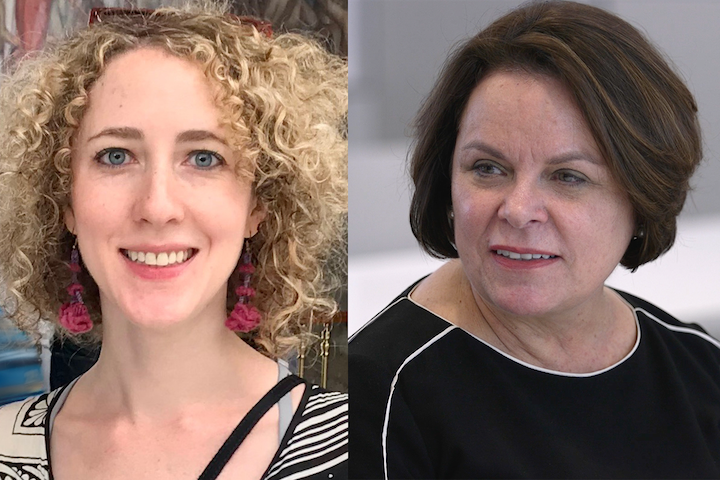This 2020 publication by Professor Regina Cortina and doctoral candidate Amanda Earl (Ph.D. expected 2022) is the result of a long student-faculty collaboration.
In 2015 Professor Regina Cortina encouraged Amanda Earl, who was then a master’s student in the International & Comparative Education program, to take a new class she was offering on critical theories in Latin American and Latinx education. Students in the course explored how knowledge production and practice in I&CE have long been dominated by conceptualizations of “modernization” that exclude or delegitimize non-European ways of educating, speaking, and ordering social and cultural life. Amanda continued the next year as a graduate assistant, helping to build out the syllabus for what is now Professor Cortina’s course on Decolonial Theories in Comparative Education.
Regina and Amanda’s recent article in Compare is another outcome of their mutual interest in applying Southern and decolonial theories to educational issues. Alternative models of higher education that focus on incorporating or promoting Indigenous knowledges and languages as part of the professionalization of university students are being created throughout Latin America. Using concepts from Boaventura de Sousa Santos’ (2017) book Decolonising the University: The Challenge of Deep Cognitive Justice, Earl and Cortina (2020) analyze the possibilities and difficulties that Indigenous and intercultural higher education programs in Latin America might face.
The authors present descriptions of four universities – the system of Universidades Interculturales of Mexico, the Universidad Autónoma, Indígena e Intercultural of Colombia, La Pluriversidad de Amawtay Wasi of Ecuador, and the donor-supported regional network of La Universidad Indígena Intercultural which has programs in various countries – to highlight how these institutions and their founders are aiming to diversify and “decolonize” higher education and its curriculum.
Looking comparatively across the Latin American cases that were studied reveals the importance of the political and leadership structure of each model to influence the kind of change it can accomplish. Those university programs that were created as grassroots institutions autonomous from state control are seeking to radically change the notion of what a “university” is. While their emphasis on local leadership and innovative teaching methodologies strengthens their ability to reverse the traditional hierarchy of academe that privileges Western ways of knowing, they face struggles to win validation from state institutions in charge of accreditation and funding. On the other hand, programs that have been created within pre-existing, conventional public universities have fostered increased support for the use of Indigenous languages and affirmation of Indigenous cultural practices even though they face several of the same challenges as grassroots universities, such as securing sufficient funding. In short, they all continue to contend with the prejudices and power dynamics that pervade modern educational systems.
As Indigenous and intercultural postsecondary programs continue to proliferate across the region and beyond, more research will be needed to understand the expansion of each model. Amanda seeks to further this research in her dissertation by shedding light on the roles of local contexts and the practices of teachers and students in different higher education models that shape the embrace of cultural and linguistic diversity by the contemporary university.
